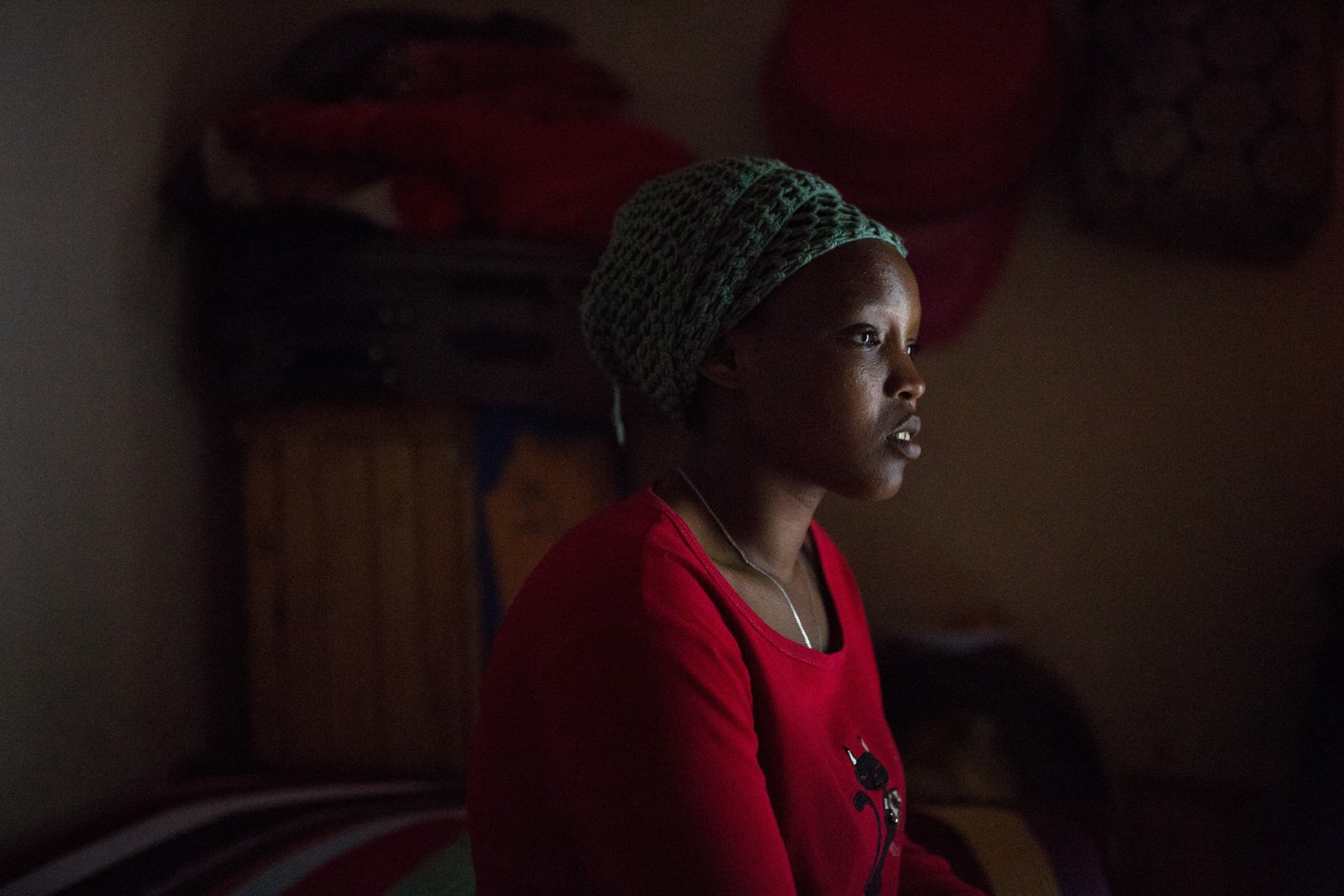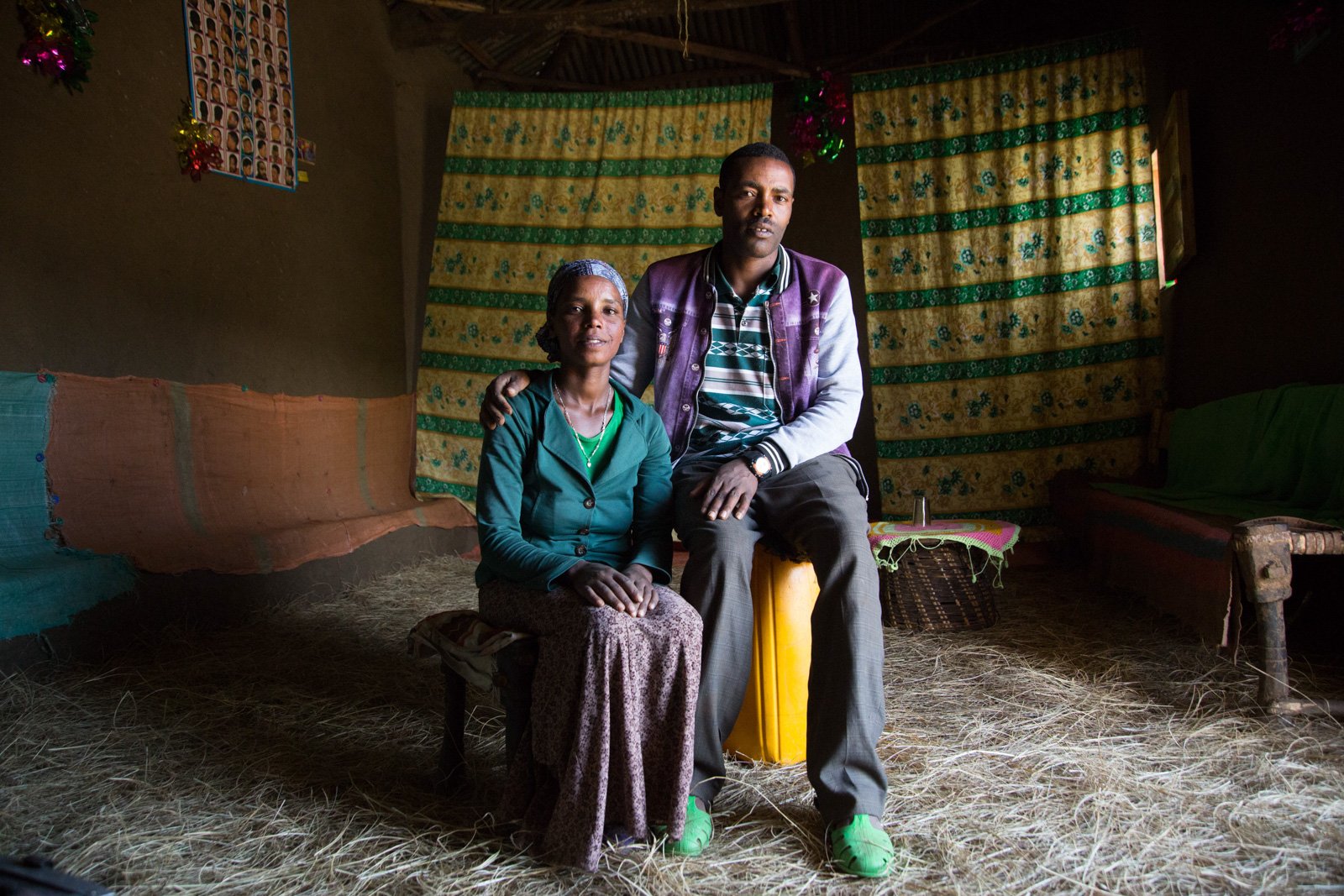Hilina Abebe
“The Black gaze means looking within, it means revisiting stories that were documented by the White folk when it comes to our own stories. I can give you Ethiopia, my own country, as an example. A lot of its history, including imagery has been written and photographed by White folk who missed the complexities of the country.
This has contributed to distortions and almost a monolithic view of the country and the African continent as a whole. SO to me the Black gaze is about the new found opportunity of owning narratives and showing every side of the story deeply, not just on the surface.”
How does the Black gaze relate to your photography practice?
Like my peers in this current generation of story tellers, I believe that we now have the opportunity to showcase local stories and do so beautifully. My work revolves around dignity and ensuring that there is a level of trust built between me the person in front of the camera.
It is a very important aspect that Black people did not have the luxury to be represented in that manner for centuries. All you have to do is google history of Black representation and it is there to remind us all that we should not be repeating the same selected narrative.
What do you want to say or address with your photography?
I want to be able to tell local stories, with empathy. I think the role of photography is to build that bridge even when people live across the bridge. I am passionate about the resilience of people who I see almost everyday. My goal is to show that well. That is my hope.
In addition to this, I want to contribute to what I referred earlier about building trust among society, that photography can be a tool to preserve a greater understanding of people. There is a lot of mistrust around the camera, sadly, that emanated from this monolithic representation of black people whose stories have always been about poverty and war, when in reality the story is complex. I think it also falls upon my generation of story tellers to regain that trust.
What influences and inspires you? How is this reflected in your work?
My greatest inspiration comes from being rooted in society, and the curiosity to reveal it further. For me, it is the everyday people who do not make the news who are an inspiration. It is the respect and empathy for people’s journeys. Every individual has a significant story that does not make it to the news unless it is breaking news caused by a disaster, conflict, violence. We ought to be keen and look deeply.
Who are your favourite Black photographers from the past? Why?
I had little reference to black photographers until after I started taking photography seriously and of course because they are rarely talked about. The first Black photographer whose work I have been introduced to was the South African photographer, Earnest Cole… so it was a revealing moment.
Another photographer, who I had the honour to meet briefly in 2014 and learn from just weeks before his passing was Michel Du Cile. He made me believe in myself as a photographer. Of course there are many other living Black photographers whose work I respect so much: Shawn Walker, Eli Reed, Ruddy Roye, Russell Frederick, and many more.
Please describe the highs and lows of your experience as a Black photographer?
I would say I have been fortunate enough to have opportunities that were not possible for Black journalists and photographers before me. This is because we now live in a digital age where one can access platforms and even self-publish and tell stories. I have also been fortunate enough to learn from many great photographers and receive their mentorship.
As for the lows, there is still this notion that local photographers cannot tell the story as the White person flying in and doing it. This perception has to change. I have seen that as an Ethiopian photographer living in Ethiopia, I do not have the same access as the white photographer coming to Ethiopia. Being a bystander because you don’t have the “Press” ID to tell a story you are close to is something that should be challenged.
What work are you producing and what more would you like to do?
I have been perusing personal projects, one that documents my own father (“Portraying My Father”) which I started documenting in 2017. The other one “Ethiopia in USA” looks into Ethiopian immigrants living in the U.S. and their sense of community while living with a newly found identity as Ethiopian-Americans. The latter I would like to continue perusing from a deeper dimension. Besides these two, I hope to document more social justice stories in Ethiopia which I am passionate about.
Born and raised in Ethiopia, Abebe is a self-taught documentary photographer who is influenced by her father’s black and white family photographs he made in the ’60s and ’70s. Her work focuses on long-form documentary and portraiture; exploring inequality, identity, history, and the significance of memory. She combines her background in Journalism and Social Work to discuss issues in her storytelling.
Hilina is an Eddie Adams Workshop XXIX Alum. In 2016, she participated in the New York Times Portfolio Review and the World Press Photo East Africa Masterclass. She is also a Joop Swart and PDN’s 30 nominee.
Her clients include The New York Times, The Wall Street Journal, Getty Images, and Terra Mater Magazin.





